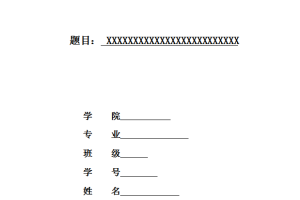摘要
房地产业作为一个涉及特殊土地资产和资金密集型产业,其固有的产业风险
属性决定了它从来都不是“温顺”的经济发展工具。房地产业存在着自身的波动
周期,外部环境的影响还会加剧这种周期的波动。过于激烈或频繁的房地产经济
波动,除了会对房地产业产生不利影响外,甚至会影响整个国民经济的正常运行。因此,研究房地产的波动周期和影响其波动的宏观经济因素有利于我们更好地把握房地产经济发展的动态,有利于我们更好的制定宏观调控政策平抑周期波动,有利于我们更好的保证经济的平稳健康发展。
本文的研究是围绕房地产市场周期波动这个现象展开的,在对以往的研究成果和理论综述的基础上,本文首先分析了房地产周期波动的四个阶段和特征。接着从我国房地产业的发展历史出发,描述了中国房地产周期波动的阶段和特征。重点是实证分析了影响房地产周期的波动的经济因素、政策因素、技术因素和心理因素。最后还探讨了中国房地产业的未来发展之路。
本文的创新之处在于:运用历史数据对中国宏观经济发展和房地产市场的波动从实证角度进行分析研究;运用周期市场理论分析中国房地产市场的发展、繁荣、调整的周期性特点;分别从政府的宏观经济政策和微观的信贷政策、税收政策和住房政策全面分析政府在中国房地产市场发展过程中的重要作用。
关键词:房地产;周期波动;宏观经济
ABSTRACT
The real estate industry as one involving special land assets and capital-intensive industries, the inherent risk of the industry attribute determines it is never “tame” economic development tool. The real estate there is its own fluctuations cycle, the impact of the external environment will exacerbate this cycle fluctuations. Too intense or frequent real estate economy fluctuations, in addition to the real estate industry will adversely affect, or even affect the normal operation of the entire national economy. Therefore, the study fluctuations in the real estate cycle and the impact of fluctuations in macroeconomic factors help us better understand the dynamics of the real estate economic development is conducive to the development of macro-control policy to stabilize cyclical fluctuations, will help us better ensure a stable and healthy development of the economy.
This study is carried out around the real estate market cycle fluctuations this phenomenon on the basis of previous research results and theoretical review, the paper first analyzes the four stages and characteristics of the fluctuations of the real estate cycle. Then, starting from the history of the development of China’s real estate industry, describes the stages and characteristics of China’s real estate cycle fluctuations. The focus of the empirical analysis of economic factors affecting the real estate cycle fluctuations, policy factors, technical factors, and psychological factors. Finally, talk about the future development of Chinese real estate.
The innovation of this paper is to: the cyclical nature of historical data from an empirical point of view on China’s macroeconomic development and the real estate market fluctuations; use of the cycle market theory analysis of China’s real estate market development, prosperity, adjust; respectively, from the Government’s macroeconomic policies and micro-credit policy, tax policy and housing policy is a comprehensive analysis of the important role of government in the development process of China’s real estate market.
Keywords: real estate; cycle fluctuations; macroeconomic





